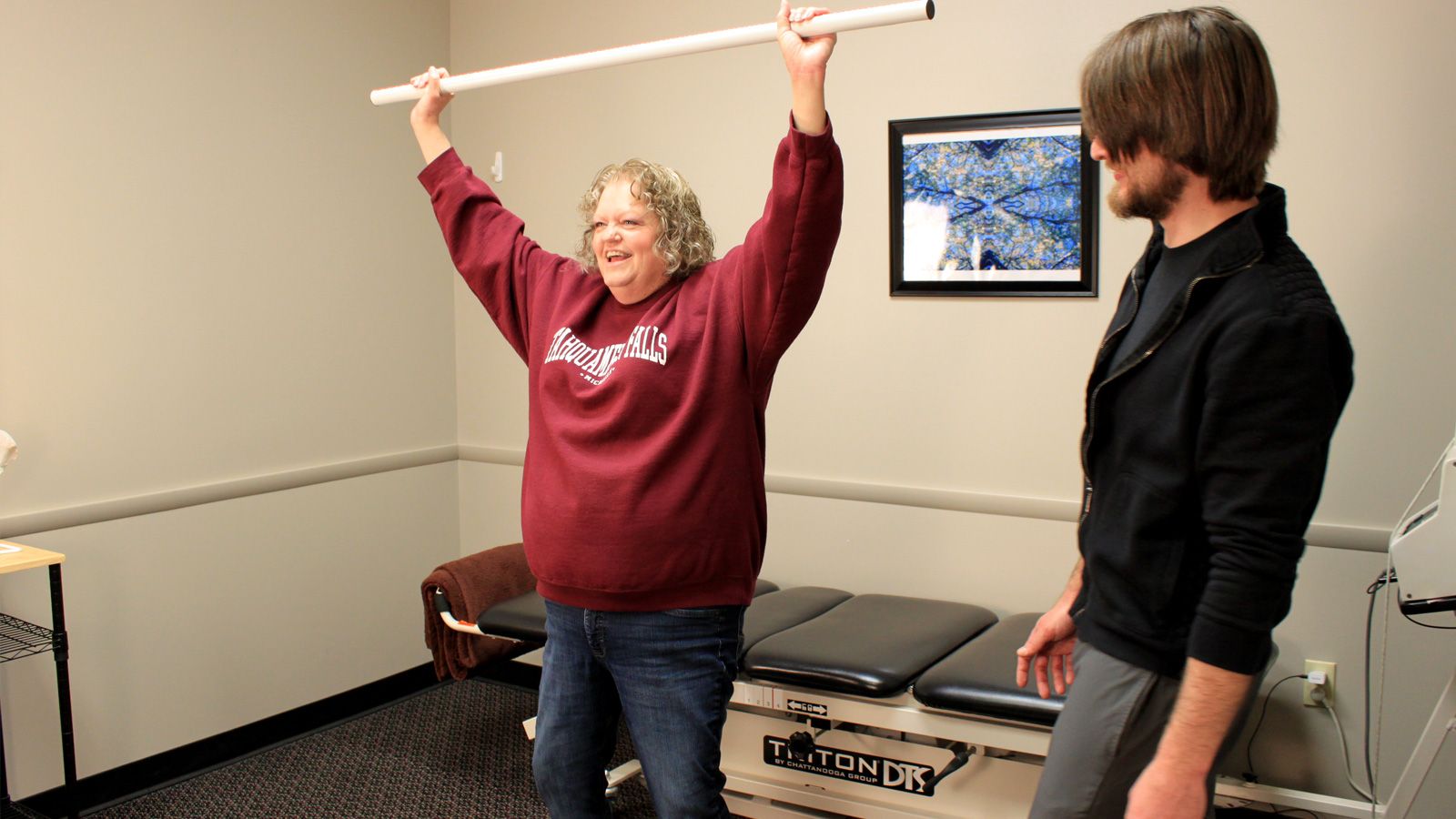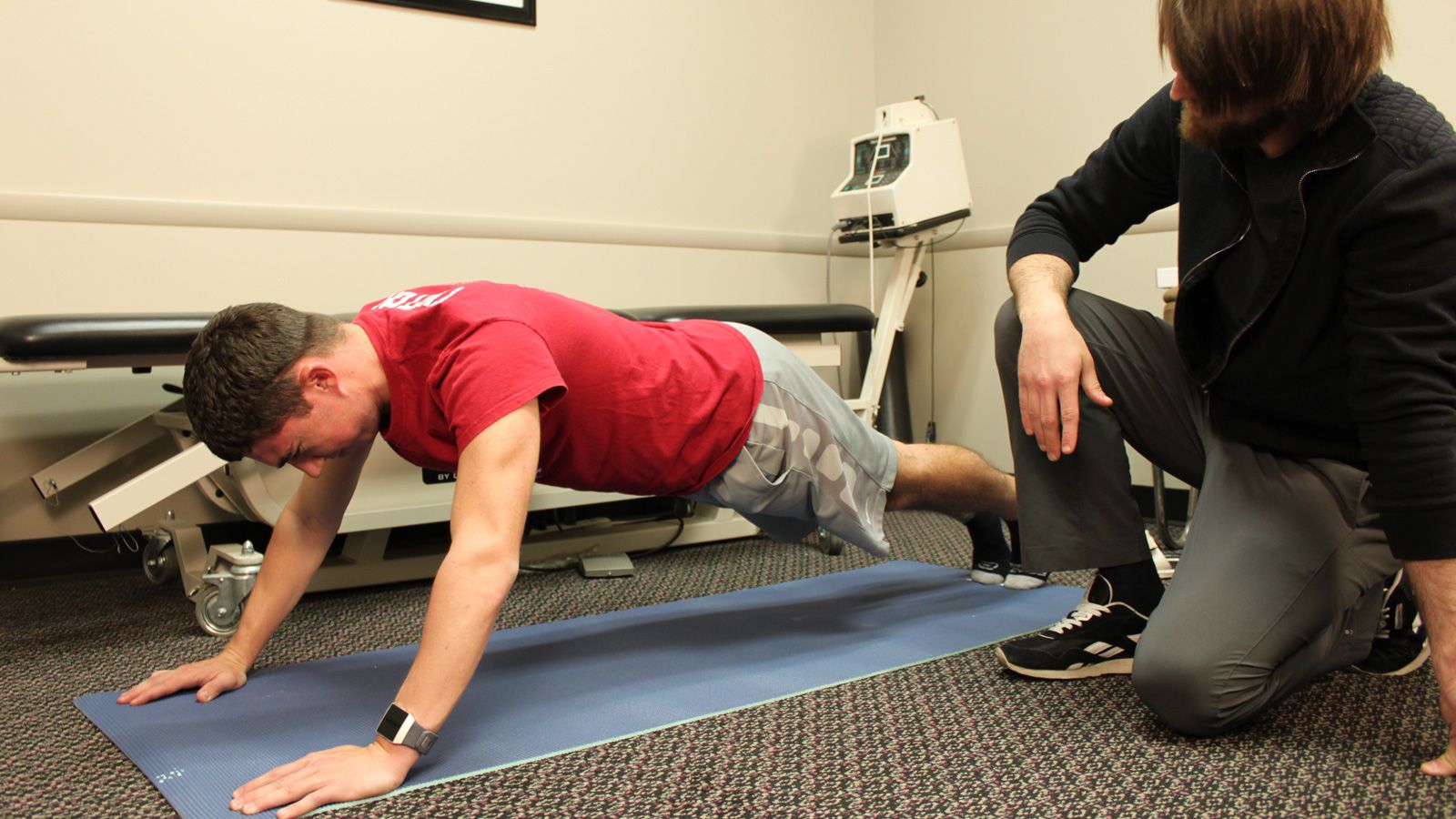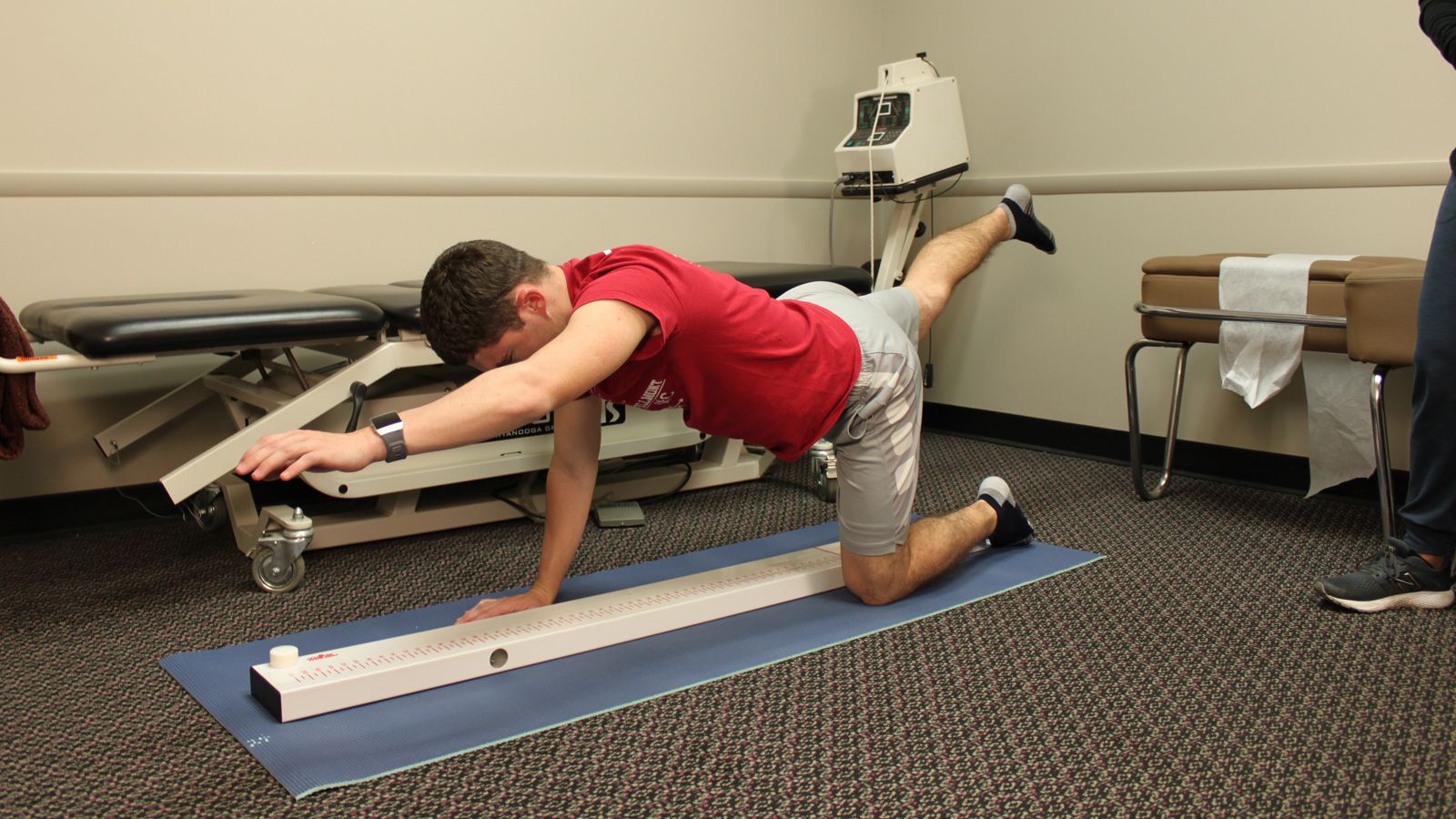Functional Movement Screen (FMS) is a screening tool that measures seven fundamental movement patterns in individuals with no current pain or known musculoskeletal injury. It is used to evaluate functional movement quality and identify limitations or asymmetries.
The FMS screen allows movement deficits to become more noticeable by putting an individual in extreme positions. FMS is designed to show if appropriate stability and mobility movements are being used. Even when a person performs an activity or sport at a high-level, they may be limited in fundamental movement. This can cause them to use compensatory movements to maintain a performance level needed for the activity/sport.
These compensatory movements are often inefficient often lead to poor biomechanics that reduce the body's ability to be adaptable and durable. FMS detects these movements and assess them. This way you and your chiropractor can begin to work towards correcting these movements.
The FMS screen allows movement deficits to become more noticeable by putting an individual in extreme positions. FMS is designed to show if appropriate stability and mobility movements are being used. Even when a person performs an activity or sport at a high-level, they may be limited in fundamental movement. This can cause them to use compensatory movements to maintain a performance level needed for the activity/sport.
These compensatory movements are often inefficient often lead to poor biomechanics that reduce the body's ability to be adaptable and durable. FMS detects these movements and assess them. This way you and your chiropractor can begin to work towards correcting these movements.


Deep Squat
Challenges total body mechanics and neuromuscular control

Hurdle Step
Challenges the body's step and stride mechanics
Also tests stability and control in a dingle-leg stance
Also tests stability and control in a dingle-leg stance

Inline Lunge
Challenges the natural counterbalance of the upper and lower extremities
Also tests hip, knee, ankle and foot mobility and stability
Also tests hip, knee, ankle and foot mobility and stability

Shoulder Mobility
Challenges the natural complementary rhythm of the scapular-thoracic region, thoracic spine and rib cage during reciprocal upper-extremity movement
Also tests the bilateral shoulder range of motion
Also tests the bilateral shoulder range of motion

Active Straight-Leg Raise
Challenges active mobility of the flexed hip, core stability, and the available hip extension of the alternate hip
Also tests the ability to disassociate the lower extremities while maintaining pelvis and core stability
Also tests the ability to disassociate the lower extremities while maintaining pelvis and core stability

Trunk Stability Push Up
Challenges reflex core stabilization and the ability to stabilize the spine during upper body, symmetrical movement

Rotary Stability
Challenges multi-plane pelvis, core and shoulder girdle stability during combined upper and lower extremity movement
Selective Functional Movement Assessment (SFMA) is a clinical assessment for those who experience pain. This movement based diagnostic system methodically finds the cause of pain. The SFMA logically breaks down dysfunctional movement patterns in a structured, repeatable assessment.
Sometimes, seemingly unrelated problems are actually driving the dysfunction and pain. The SFMA focuses on underlying dysfunctional movement to find the cause of pain, not just the source. This system allows Dr. Carla to identify the correct problems - mobility versus motor control – which helps her put together the best program for a successful outcome.
Sometimes, seemingly unrelated problems are actually driving the dysfunction and pain. The SFMA focuses on underlying dysfunctional movement to find the cause of pain, not just the source. This system allows Dr. Carla to identify the correct problems - mobility versus motor control – which helps her put together the best program for a successful outcome.

